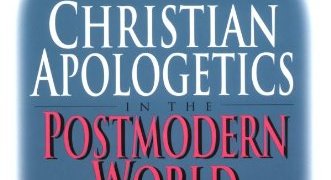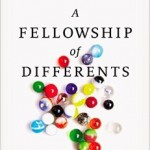 This week, I re-read this wonderful passage from Phil Kenneson’s superb essay “There’s no such thing as objective truth, and it’s a good thing too” (in the volume Christian Apologetics in the Postmodern World). Phil will be one of our speakers for The Slow Church Conference, April 3-5.
This week, I re-read this wonderful passage from Phil Kenneson’s superb essay “There’s no such thing as objective truth, and it’s a good thing too” (in the volume Christian Apologetics in the Postmodern World). Phil will be one of our speakers for The Slow Church Conference, April 3-5.
To summarize Phil’s argument here, Christianity is better off without objective truth, because we are then driven deeper into our calling as good, vibrant (and I would add Slow) church communities.
What do you think? Do you buy Phil’s argument here?
But I don’t want to stop at saying that Christians are not obligated to accept the old paradigm of [objective] truth. I want to argue that contemporary Christians would be better off without such notions, where “better off” entails having a clearer idea of what it means to be a Christian and what it means to be the church. Here are some suggestions for what the Christian life might look like within this alternative paradigm:
First, the church becomes an indispensable touchstone. Even a non-Christian like Rorty understands that if you give up on attaining a view from nowhere, “then the important question will be about what sort of human being you want to become,” which will quite naturally lead you to ask,” With what communities should you identify, of which should you think of yourself as a member?” In other words, once one leaves behind achieving a “view from nowhere,” what comes to the foreground is the community or communities whose convictions and practices are themselves an embodiment of what they take to be good and true. This encourages us to explore further what Christians ought to have understood already on more “theological” grounds: that what it means to be a Christian is inseparable from what it means to be the church.
Within such a model, the church has a word to speak to the world not because it has a message that is objectively true, a message which could be separated from the embodied message that the church always is. Rather, the church has a word to speak to the world because it embodies an alternative politics, an alternative way of ordering human life made possible by Jesus Christ. The central practices and virtues of such a community, practices and virtues which embody—even if imperfectly—the character of the God it serves, are such things as forgiveness, reconciliation, peacemaking, patience, truth-telling, trust, vulnerability, faithfulness, constancy and simplicity of life. This suggests that evangelicals need to pay a good deal more attention to ecclesiological matters than they traditionally have.












